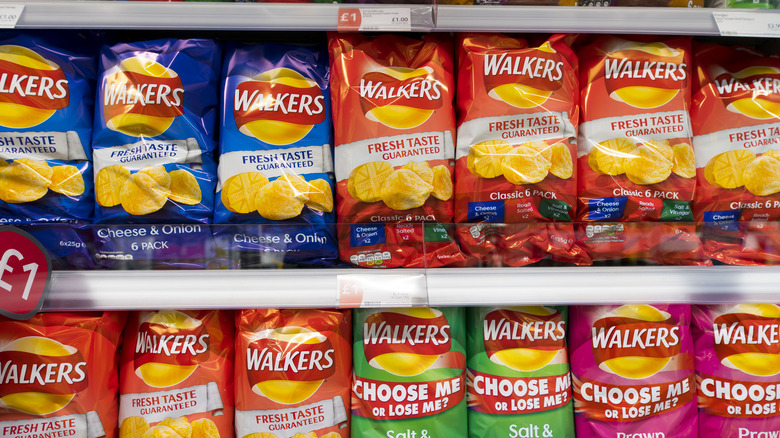Is A 'Snack Tax' Really Coming To England?
Obesity is a growing health crisis in much of the Western world. In the United States, Europe, and the UK, increasingly unhealthy diets have led to a troubling rise in many health issues, including type two diabetes, high blood pressure, heart disease, and even cancer. Henry Dimbleby, the British government's new food tsar and head of the government-commissioned new National Food Strategy, aims to change all this with the world's first ever "snack tax."
The proposed Sugar and Salt Reformulation Tax would implement a £3 per kg tax on sugar and a £6 per kg tax on salt that is used by restaurant, caterers, or in processed foods, in an effort to discourage citizens from consuming sugary, salty, high-fat foods that are the leading causes of many health problems, according to the Manchester Evening News. The main goal would be to break the current "junk food cycle," Dimbleby explained, stating that the current food system "is doing terrible damage to our planet and to our health," per The Week.
Some people fear the tax could harm lower income communities
The National Food Strategy's report found that citizens of the UK consume about five times more salty chips and 1.5 times the amount of sugary breakfast cereals than they did in the 1970s, the Manchester Evening News reports. However, while the proposition aims to improve public health by incentivizing people to eat healthier and reduce portion sizes, The Guardian notes that some fear the tax would lead to an increase in food prices that would have a disproportionate impact on lower income consumers and food insecure communities.
The National Food Strategy also expressed concerns about the strain these diet-induced health issues have been placing on England's National Health System, the government-funded health care services available to all citizens. According to the Manchester Evening News, type two diabetes alone is predicted to cost the NHS a whopping 15 billion pounds annually by 2035.
While the tax has not yet been implemented, some people feel that government intervention is the only way to improve people's diets. "Education and willpower are not enough. We cannot escape this vicious cycle without rebalancing the financial incentives within the food system," Dimbleby told The Guardian, adding: "Change is never easy. But we cannot build a sustainable, healthy and fair food system by doing business as usual."

